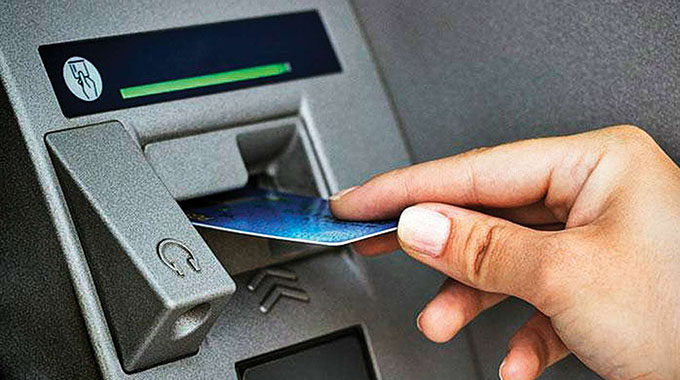Be wary of card cloning

Tom Muleya
Fraud Insight
Yesteryear, keeping money in a bank card was viewed as good safety net. Alas! That is not the case now in this world of contact-less technology, where the cyber landscape is favouring cyber criminals. Card cloning madness has hit the whole world; a person is a millionaire today and wakes up the following day with nothing. Card cloning is a very big problem’ globally.
But how big of a problem is card cloning? According to the Nilson Report, an estimated global fraud loss of US$183,3 billion occurred from 2015 to 2020.
According to the Federal Trade Commission, a total of 271 000 plus reports of credit card fraud were filled in 2019. Researches indicate that, of the total global losses, 38,6 percent of card fraud losses occur in the United States.
Coming closer home, the financial sector is the hardest hit by card cloners. According to the ZICT, in October 2018, there were 154 cases of card cloning cases recorded in Zimbabwe.
The Zimbabwe Republic Police had to issue an alert in October 2019, warning the public about the increase in card cloning.
In March 2021, the police arrested a card cloner in Bulawayo and recovered from him 78 active Zimswitch cards. This shows that card cloning is a global phenomenon and we should be wary about it.
In my previous article, I indicated that card cloning is a type of credit/debit card theft in which the thief makes a digital copy of the card information using a concealed or disguised electronic scanner. It is also called skimming.
The cloner will swipe your card through a machine to copy all your customer details, which are on the magnetic strip.
The extracted details are then copied to the new or blank bank card, thereby creating a replica card which gives them access to your account.
Now let us look at what one of the victim said after reading an article on card cloning on Fraud Insight and possibly try to figure out what could have happened:
“Good morning Detective! I have read your article on card cloning in The Herald. My name is MM. On 6 December 2021, I lost $22 000 from my NMB account through card cloning.
“I reported the case to the police and the matter is still under investigation. To my surprise, I only used my card in the established supermarkets, particularly Pick n Pay and Food World. “
This story highlights the point of contact, which is supermarkets.
Card cloning fraudsters are now operating in syndicates, and each group operates within a specific designated area. They mainly pick and identify their prey in supermarkets while unsuspecting victims do their shopping.
These criminals deploy themselves in the shop purporting to be genuine clients. They target mainly those who make big groceries.
They in turn imitate the victim and purport to buy a big grocery too but at the same time checking on which till the targeted victim will make the payment.
They will deliberately go in front and when their turn comes, they will pretend as if they are still waiting for someone and therefore will seemingly allow their victim to go in the front.
At this time, they would have positioned themselves in such a way that they at least see and master the last 8 digit numbers on the card or clandestinely take a photo of the card with their cellphone.
If they manage to capture the PIN as the victim enters it on a POS machine, it becomes a bonus for them.
The second scenario is that card cloners connive with till operators to give them information as unsuspecting customers do their shopping.
The corrupt supermarket workers are then given lucrative kickbacks for facilitating the process.
Remember, card cloning is a contactless criminal technology, so fraudsters armed with simple figures go on to produce another card.
And where they have no PIN, they initiate a pin by-pass and then shop at specific POS machines that do not require or ask for a pin upon swiping, but rather approves the transaction automatically.
So, victim MM’s card was cloned in either of those these two ways.
Watch out when shopping and avoid being a victim to cyber card cloning fraudsters.
Get empowered by Fraud Insight and be part of a solution to card cloning. Watch out for the next issue for more information on card cloning fraud.
For your feedback, WhatsApp line: 0772 764 043, or e-mail:[email protected]. Tom Muleya is a Detective Assistant Inspector working under the Criminal Investigations Department. Harare. He is also a member of the National Cyber Security Taskforce, Zimbabwe.







Comments